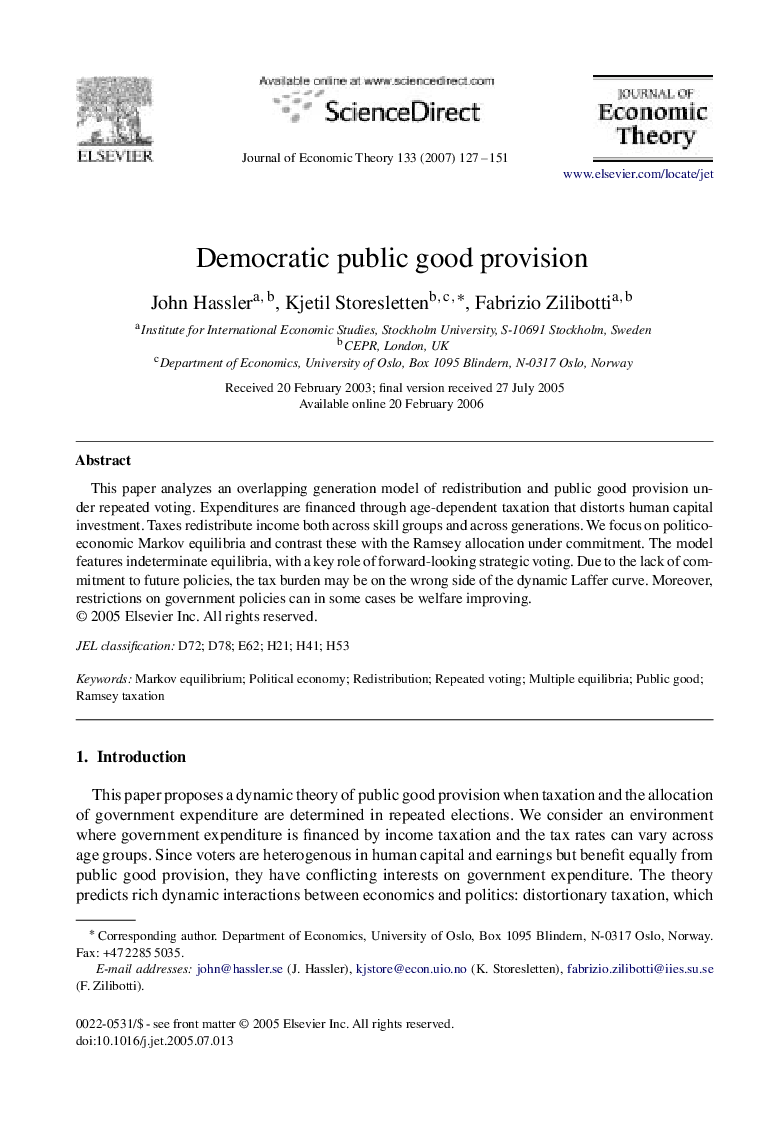| Article ID | Journal | Published Year | Pages | File Type |
|---|---|---|---|---|
| 957402 | Journal of Economic Theory | 2007 | 25 Pages |
Abstract
This paper analyzes an overlapping generation model of redistribution and public good provision under repeated voting. Expenditures are financed through age-dependent taxation that distorts human capital investment. Taxes redistribute income both across skill groups and across generations. We focus on politico-economic Markov equilibria and contrast these with the Ramsey allocation under commitment. The model features indeterminate equilibria, with a key role of forward-looking strategic voting. Due to the lack of commitment to future policies, the tax burden may be on the wrong side of the dynamic Laffer curve. Moreover, restrictions on government policies can in some cases be welfare improving.
Keywords
Related Topics
Social Sciences and Humanities
Economics, Econometrics and Finance
Economics and Econometrics
Authors
John Hassler, Kjetil Storesletten, Fabrizio Zilibotti,
